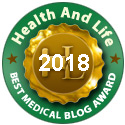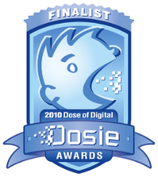Will acts of kindness and generosity enhance our health, increase our longevity and make us happier? Can genuine altruism be a remedy for stress? When we act on behalf of other people, research shows we feel better and more secure and experience less stress.
Does altruism have a physiological basis? Using MRI scans, scientists have identified specific regions of the brain that are very active during deeply and compassionate emotions. Stephen Post, Ph.D., head of the Institute for Research on Unlimited Love, told WebMD: “This is the care-and-connection part of the brain. States of joy and delight come from giving to others. It doesn’t come from any dry action – where the act is out of duty in the narrowest sense.” What Post is describing is heartfelt giving. Neurochemicals also enter into this picture of altruism. A recent study has identified high levels of the hormone oxytocin in people who are very charitable toward others. But what about the heart?
The Institute of HeartMath, a nonprofit research and education organization in California, has studied the physiology of and relationship between the heart, stress, and emotions for 17 years. Dr. J. Andrew Armour, a leading neurocardiologist on the Institute of HeartMath’s Scientific Advisory Board, has found the heart contains cells that synthesize and release hormones such as epinephrine (adrenaline) and dopamine, among others. More recently it was discovered that the heart also secretes oxytocin, commonly referred to as the “love” or “bonding” hormone. Remarkably, concentrations of oxytocin produced in the heart are as high as those found in the brain. When you are altruistic – lending a helping hand – your oxytocin level goes up, which helps relieve your stress. Altruistic behavior also may trigger the brain’s reward circuitry – the feel-good chemicals such as dopamine and endorphins. However, the hormonal benefits of the good deed depend on the genuine intent of the act of altruism.
Research shows that altruistic people are healthier and live longer. In one study that followed over 400 women for 30 years, researchers found that 52% of those who did not engage in volunteer work experienced a major illness – compared with only 36% of those who did volunteer. In a British poll of volunteers, half of those surveyed said their health had improved over the course of volunteering. One in five even said that volunteering had helped them lose weight. Another large research study found a 44% reduction in early death among those who volunteered – a greater effect than exercising four times a week. And a recent investigation conducted by the University of Michigan’s Institute for Social Research found that older people who are helpful to others reduce their risk of dying by nearly 60% compared to peers who provide neither practical help nor emotional support to relatives, neighbors or friends.
You can learn to cultivate altruism using the HeartMath® System. HeartMath experts say that giving to others should be balanced with self-care so you don’t burn yourself out. Giving is most effective when it comes from a genuine sense of heartfelt care rather than a feeling of duty or “I should.” The heart-focused techniques of the HeartMath System help people to align themselves more fully with their core values and to actualize more care and compassion in their daily lives. Practice of these techniques has also been linked to beneficial changes in hormones that profoundly affect our health, happiness and longevity. Integrating HeartMath practices into your life helps you reduce stress while increasing your generosity from the heart.
Benefits of Altruism:
· Promotes emotional, physical, mental and spiritual health.
· Boosts your self-esteem and confidence.
· Increases your longevity.
· Givers are more open to receiving gifts and experiencing appreciation.
· Provides a way to express your feelings about someone or an issue.
· Builds connections and relationships with others.
· People gain knowledge about the cause and issue they give to.
· Giving to a community or globally is caring that uplifts consciousness.
For more scientific information go to: www.heartmath.org.
Copyright © HeartMath. Since 1991 HeartMath has been dedicated to decoding the underlying mechanics of stress. HeartMath is internationally recognized for their solutions to transform the stress of change and uncertainty, and bring coherence and renewed energy into people’s lives. Research and clinical studies conducted by HeartMath have examined emotional physiology, heart-brain interactions, and the physiology of learning and performance. Through their research they have demonstrated the critical link between emotions, heart function, and cognitive performance. HeartMath’s work has been published in numerous peer-reviewed journals such as American Journal of Cardiology, Stress Medicine, and Preventive Cardiology, as well as business journals such as Harvard Business Review and Leadership Excellence. HeartMath’s organizational clients include NASA, BP, Duke University Health System, Stanford Business School, Redken, Kaiser Permanente, Boeing, and Cisco Systems, as well as dozens of school systems and thousands of health professionals around the world. To learn more about HeartMath, go to www.heartmath.com.

 RSS Feed
RSS Feed































